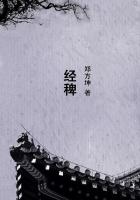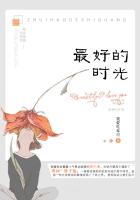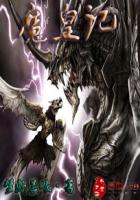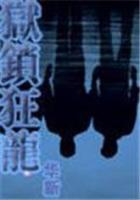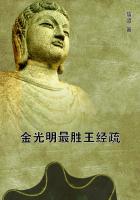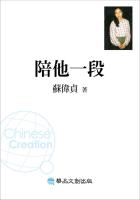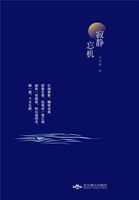Gold and iron are good To buy iron and gold;
All earth's fleece and food For their like are sold.
Boded Merlin wise, Proved Napoleon great,-- Nor kind nor coinage buys Aught above its rate.
Fear, Craft, and Avarice Cannot rear a State.
Out of dust to build What is more than dust,-- Walls Amphion piled Phoebus stablish must.
When the Muses nine With the Virtues meet, Find to their design An Atlantic seat, By green orchard boughs Fended from the heat, Where the statesman ploughs Furrow for the wheat;
When the Church is social worth, When the state-house is the hearth, Then the perfect State is come, The republican at home.
ESSAY VII _Politics_
In dealing with the State, we ought to remember that its institution are not aboriginal, though they existed before we were born: that they are not superior to the citizen: that every one of them was once the act of a single man: every law and usage was a man's expedient to meet a particular case: that they all are imitable, all alterable; we may make as good; we may make better.
Society is an illusion to the young citizen. It lies before him in rigid repose, with certain names, men, and institutions, rooted like oak-trees to the centre, round which all arrange themselves the best they can. But the old statesman knows that society is fluid; there are no such roots and centres; but any particle may suddenly become the centre of the movement, and compel the system to gyrate round it, as every man of strong will, like Pisistratus, or Cromwell, does for a time, and every man of truth, like Plato, or Paul, does forever.
But politics rest on necessary foundations, and cannot be treated with levity. Republics abound in young civilians, who believe that the laws make the city, that grave modifications of the policy and modes of living, and employments of the population, that commerce, education, and religion, may be voted in or out; and that any measure, though it were absurd, may be imposed on a people, if only you can get sufficient voices to make it a law. But the wise know that foolish legislation is a rope of sand, which perishes in the twisting; that the State must follow, and not lead the character and progress of the citizen; the strongest usurper is quickly got rid of; and they only who build on Ideas, build for eternity; and that the form of government which prevails, is the expression of what cultivation exists in the population which permits it. The law is only a memorandum. We are superstitious, and esteem the statute somewhat: so much life as it has in the character of living men, is its force. The statute stands there to say, yesterday we agreed so and so, but how feel ye this article today? Our statute is a currency, which we stamp with our own portrait: it soon becomes unrecognizable, and in process of time will return to the mint.
Nature is not democratic, nor limited-monarchical, but despotic, and will not be fooled or abated of any jot of her authority, by the pertest of her sons: and as fast as the public mind is opened to more intelligence, the code is seen to be brute and stammering. It speaks not articulately, and must be made to. Meantime the education of the general mind never stops. The reveries of the true and simple are prophetic. What the tender poetic youth dreams, and prays, and paints today, but shuns the ridicule of saying aloud, shall presently be the resolutions of public bodies, then shall be carried as grievance and bill of rights through conflict and war, and then shall be triumphant law and establishment for a hundred years, until it gives place, in turn, to new prayers and pictures. The history of the State sketches in coarse outline the progress of thought, and follows at a distance the delicacy of culture and of aspiration.
The theory of politics, which has possessed the mind of men, and which they have expressed the best they could in their laws and in their revolutions, considers persons and property as the two objects for whose protection government exists. Of persons, all have equal rights, in virtue of being identical in nature. This interest, of course, with its whole power demands a democracy. Whilst the rights of all as persons are equal, in virtue of their access to reason, their rights in property are very unequal. One man owns his clothes, and another owns a county. This accident, depending, primarily, on the skill and virtue of the parties, of which there is every degree, and, secondarily, on patrimony, falls unequally, and its rights, of course, are unequal. Personal rights, universally the same, demand a government framed on the ratio of the census: property demands a government framed on the ratio of owners and of owning.
Laban, who has flocks and herds, wishes them looked after by an officer on the frontiers, lest the Midianites shall drive them off, and pays a tax to that end. Jacob has no flocks or herds, and no fear of the Midianites, and pays no tax to the officer. It seemed fit that Laban and Jacob should have equal rights to elect the officer, who is to defend their persons, but that Laban, and not Jacob, should elect the officer who is to guard the sheep and cattle.
And, if question arise whether additional officers or watch-towers should be provided, must not Laban and Isaac, and those who must sell part of their herds to buy protection for the rest, judge better of this, and with more right, than Jacob, who, because he is a youth and a traveller, eats their bread and not his own.
In the earliest society the proprietors made their own wealth, and so long as it comes to the owners in the direct way, no other opinion would arise in any equitable community, than that property should make the law for property, and persons the law for persons.


